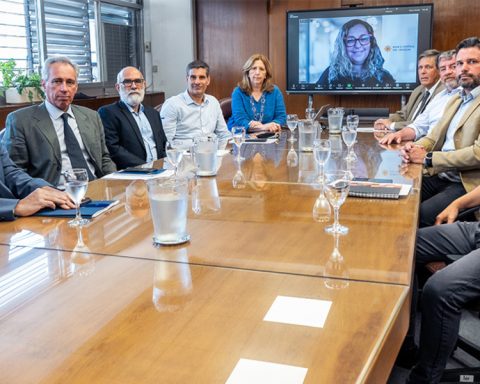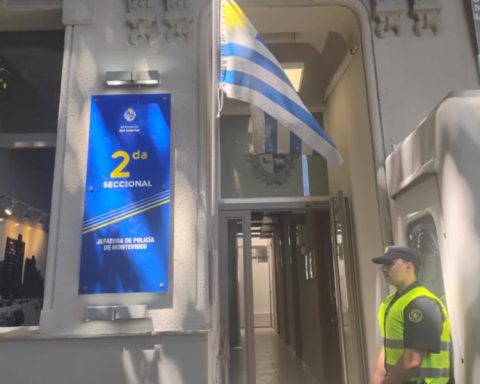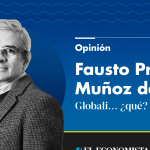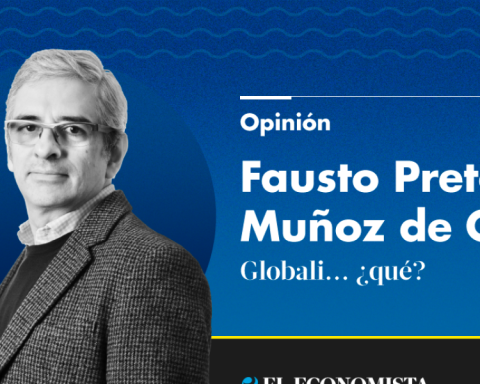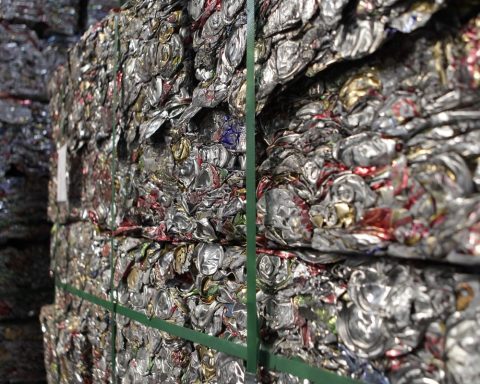Fernando Pache took over as president of the Chamber of Industries (CIU) at the end of last year. At the head of the union, he wants to promote a recovery and recovery plan for plastic, cardboard or wood containers. Maintains that Uruguay is expensive because the industries have high production costs for a relatively small consumer market.. For this reason, companies have the need to look abroad to try to place their articles. But according to his vision, not all of them have the conditions and the capacity for this challenge to have a successful end.
Below is a summary of the interview he conducted with The Observer.
What are the main objectives that you set yourself for this period as president of the Chamber of Industries?
We assume at the end of the year. We were already in the administration of Alfredo Antía (previous president) and there are pending issues. We set out to focus on specific issues. One of the most important, and one that is being carried out, is the VALE Plan (Plan for the Valorization of Containers and Packaged Materials). The Ministry of the Environment issued two internal regulations in 2021, ministerial ordinances, which set deadlines for companies to comply with collection standards and take responsibility. There is talk of traditional containers, in PET plastic, tetrapack, containers of all kinds of plastic that contain food. Also glass, cardboard or wooden containers. It is a play and an important obligation. It is a huge challenge. The Chamber of Industries took it as an objective and challenge. The goal is that the 4% that is recycled today in Uruguay will go to 25% this year and 50% in 2024 at the national level. You also have to work so that the waste, the bottle or the box has a specific place to be able to take it. It entails education for the industrialist, but also for the final consumer. We now want this to be mandatory. It is necessary to generate a regulation, we believe that a decree. On the other hand, there is the power to obtain help from the Executive Branch for public purchases of national products. We consider it very important. We have to work in that direction. In the pharmaceutical industry, for example, if there is national medication that meets the requirements, it must be given priority over imported products. There is also food at the state level. There the national thing should have absolute priority.
In recent weeks, the chamber promoted the Local Currency Payment System. Is it the best option at this time to unlock exports with Argentina?
We want to revive that old work tool. The Central Bank (BCU) understands that it can effectively unlock the situation with Argentina. Uruguay’s exports to Argentina are large, but (last year) they went hand in hand with soybeans that Argentina imported under Temporary Admission to reprocess its products, and electricity. That counts from a numbers standpoint, but not from what we’re looking for. That the small and medium industrial manage to have a fluidity and a projection with Argentina that today it cannot have.
Photo: Leonardo Carreno.
Fernando Pache
whatDid the industry recover pre-pandemic levels of activity?
We think so. She managed to recover, as did her job. Activity picks up when looking at big numbers. My biggest concern is that the large macroeconomic figures do not make us lose sight of the fact that often three or four sectors, such as wood, meat, oilseeds and dairy products, cause these figures to show recovery again. But they lose sight of the manufacturer of cookies, sweets, sweets. The big ones need us as a union, but they know how to take care of themselves. The little ones, who don’t even have the time to go to a union to ask for support, are what I understand we should take care of.
Beyond those sectors that you mentioned that are the most dynamic, how are the others at the level of competitiveness? Did they bet on process optimization, automation, or are they lagging behind?
The companies that are known and consumed daily, which are leading brands, are up-to-date from a technological point of view with the best scores. Also in technical and process standards and this is recognized without realizing it on a day-to-day basis, in what is consumed. Later there will be companies that will not have that level and many of them do not have continuity either because they are family businesses in which reinvestment does not make much sense. When there is no luck to have continuity and the company is in charge of a person over 60 or 70 years old, it is difficult for him to reinvest. Because it is going to be something that is going to be repaid within a period of between five and eight years. Is a reality. So, what you cannot do technologically quickly, you momentarily re-incorporate it with brands from abroad or with your own brand packaged abroad. Thus it manages to be commercially competitive. There are food brands with continuity and in which young blood has entered, and these companies, in general, bet on updating. When we say that Uruguay is expensive, I’m not saying no. But before repeating it we should have the reason. We talk about expensive electricity, gas, fuel. But the matrix cost of the company is one. Dividing by 3 million consumers is not the same as dividing by 30 million people. Because the cost of a chemical engineer to supply 30 million people is one. But the obligatory nature of international and local standards, to which Uruguay is so attached, quickly make it necessary to have a food engineer, in technical standards, another preventionist. All of this means that your product dilutes your fixed costs by three million, because you don’t have a market abroad. That’s why we are expensive, not just because. We are expensive because we do not have the volume to distribute the fixed cost that international and national conditions impose on us. In addition, there are the Mercosur regulations that are also complied with. Front labeling, special rules, rules and more rules. In the macro they are fulfilled, but it has a cost. This is not talked about, but Uruguay is expensive because it has this situation: it complies with everything and it has to continue diluting it among the same number of consumers. That is why the need to go out and sell abroad arises, but not all companies have the capacity to do so.
Why not? What are the difficulties?
First, for that, companies have to do an internal look. What is your condition. In order to sell abroad, I would say to companies -which rightfully complain about the supermarket demands of discounts and costs- that they have to assume that these costs and more are at loss or at risk. That until later, if he gave them the cloth, they can level or have a commercial return. A company to sell abroad first has to analyze if it is in good conditions. Does the outside customer contact person speak English fluently? Today the conversation of your foreign trade person will be through WhatsApp. You can send 10 catalogs, but if the customer is interested, they will call the phone number that is in the catalog and try to talk to the person on the other end of the line. If that person does not have the innate commercial condition as a salesperson, but also does not have language fluency, you wasted money. Get ready for that first, have the people ready, and then go out and sell. Not everyone understands it and not everyone knows it.
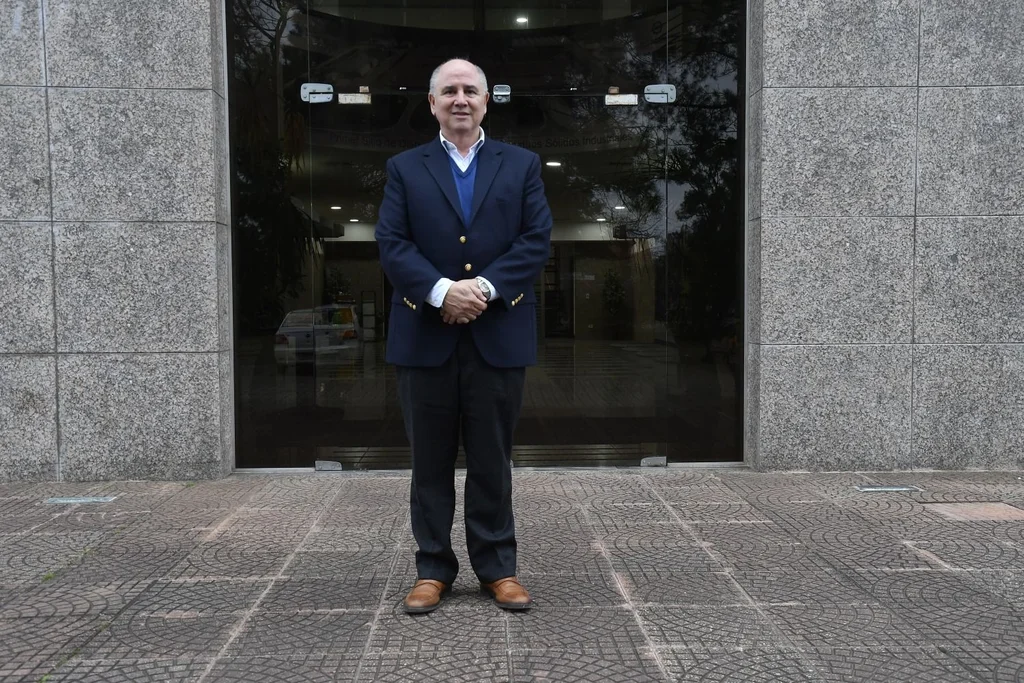
Photo: Leonardo Carreno.
He referred to compliance with local and international standards for Uruguayan products. For many years there was business criticism of the controls that are carried out on imported products. How is that situation currently?
After many years, through the Ministry of Industry and Public Health, it had been possible to obtain a decree in 2021 that determined the fines and observations that could be applied to products that did not comply with going through LATU to receive a certificate of commercialization. For this, LATU visits the company, extracts the samples, carries out the controls and issues the certificate. But it did not have a regulation that allowed compulsory entry into the company. So if the importer did not call, LATU could not intervene. That went on for years. There were companies that had products on the street without going through the laboratory. After much effort, it was regulated that there is a decree that says that if there is a product with certain characteristics, the intervention of the Ministry of Industry corresponds. And in other cases of the MSP. If LATU finds non-compliance, it notifies one or the other and the company is notified there. There is an observation the first time, on the second importation another observation and so on until the quality of importer is practically lost, or large fines are paid. Unfortunately, the government, now in the hands of the Ministry of Economy, issued another decree in June 2022 that on the one hand lowered the importer’s mandatory rate of payment to LATU from 1.5% to 0.5%. Not only did he get 1% of the box; It also gave the importer the benefit of lowering costs. On the other hand, it determined that in order to compensate for this reduction in LATU income, random inspections of the merchandise would be carried out. Risking people’s health. After almost 20 years of searching for tools that would allow intervention, this resolution came out. On the one hand, we want to go out and look for markets, fight so that they allow us to export our products abroad, and on the other hand, we lower taxes for importers and tell them that the controls will be random. That does not happen to the national industry. You have to comply with all the inspections there are. The municipalities can carry out all the inspections they want, they have their teams that can withdraw merchandise, carry out controls and determine whether or not the manufacturer is in violation. The national industry is offended, it is upset, because there are no equal working conditions. A job is worth it, said the president of the republic, and we agree with that. But that is not consistent with the other.

